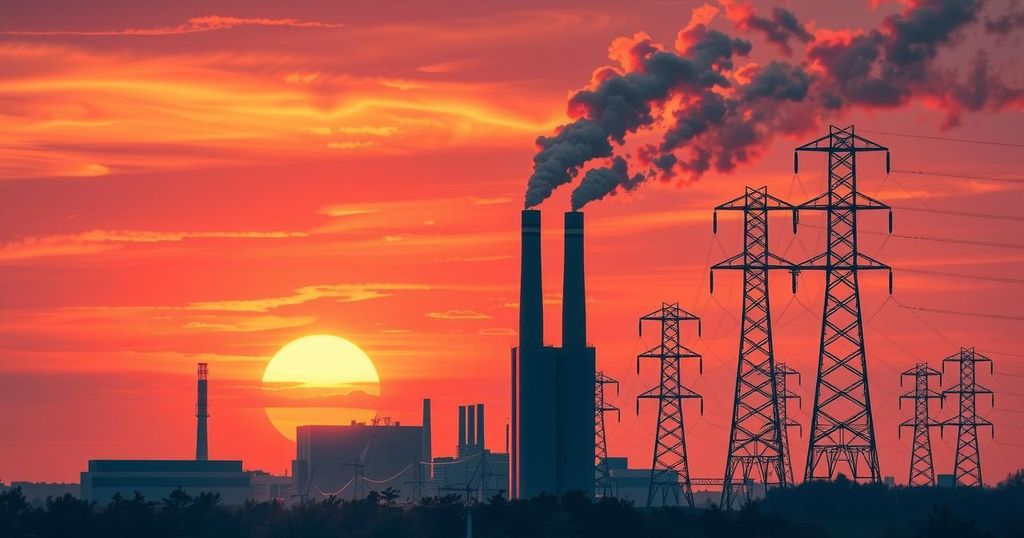Colombia’s Proposal to Shift Electricity Debt to Higher-Income Households
Colombia’s Energy Minister proposes a debt shift to higher-income households to prevent utility closures. Outstanding debts to energy distributors have reached 3.1 trillion pesos ($753.3m), exacerbated by non-charged fees during the pandemic. The government aims to incorporate 6GW of clean energy into the grid by August 2026 amidst warnings of potential blackouts due to project delays.
In an effort to avert the closure of several utilities, Colombia’s Energy Minister, Edwin Palma, has proposed a shift in the burden of debt from the government to higher-income households and companies. This proposal would need to be approved by Congress to become effective. Palma criticized lawmakers for not passing a 2024 proposal which aimed to raise 12 trillion pesos ($2.9 billion) via higher taxes to address this financial gap.
As of February 2025, the Colombian government owes 3.1 trillion pesos ($753.3 million) to energy distributors due to fees not collected during the Covid-19 pandemic. Including various subsidies, the total debt to the energy sector reaches 7.4 trillion pesos, according to the industry association Asocodis. The urgency of this situation is heightened as the government prepares for an electricity generation auction, amid forecasts of potential energy shortages.
Energy sector associations are voicing concerns over the risk of blackouts in the medium term, which they attribute to delays in the environmental licensing of wind and solar energy projects. At the Colombia Genera conference in Cartagena, Minister Palma expressed the government’s goal to procure a substantial quantity of energy, emphasizing a preference for clean and renewable sources. “We hope to receive the largest amount of energy, hopefully clean, renewable… which will allow us to have guaranteed energy so that this country does not suffer what neighbouring countries have suffered,” he stated.
The government’s strategic plan aims to add 6GW of clean energy to Colombia’s electricity infrastructure by August 2026, coinciding with the conclusion of President Gustavo Petro’s term. More details regarding this initiative are expected to be released shortly.
The proposed shift of electricity debt to higher-income individuals and companies aims to alleviate financial pressures on Colombian power distributors and prevent utility closures. Despite existing challenges, including significant outstanding debts and potential energy shortages, the Colombian government is committed to integrating more renewable energy sources into the national grid by 2026. Continued dialogue with Congress and effective implementation of energy solutions will be critical in addressing these issues.
Original Source: www.power-technology.com




Post Comment